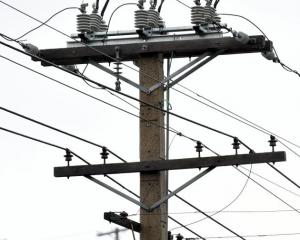The Central South Island Fish and Game Council is defending a water allocation plan for the Waitaki catchment, under attack from applicants wanting to take more water from its rivers and streams.
Yesterday, the council presented its case to an Environment Canterbury (ECan) hearings panel, sitting in Oamaru to consider 56 applications to take and use water from the Hakataramea catchment, lower Waitaki River and its tributaries.
Most of those applications do not comply with the Waitaki catchment water allocation regional plan, prepared in 2005 by the Government-appointed Waitaki Catchment Water Allocation Board, because of pressure to take water, including the proposed Meridian Energy Ltd Project Aqua power scheme.
Applicants for water from the lower Waitaki River want the plan's environmental minimum flow of 150cumecs lowered to 100cumecs.
New applications between the Waitaki dam and Black Point exceed the 150 million cubic metres allocated in the plan for irrigation.
The fish and game council opposes granting resource consents to the applicants, particularly those which seek to reduce provisions in the allocation plan.
Its resources officer, Bridget Pringle, said that, in general, applications did not include sufficient detail to enable the council to assess the potential effects.
The lower Waitaki catchment, its trout and salmon fisheries, and other values, deserved to be protected in accordance with the water allocation plan, she said.
Granting the applications compromised the integrity of the plan and the minimum flows it set to provide certainty for all users.
By setting minimum flows and allocating water to various users, the council thought the competition would be among water users.
The minimum flows would protect the rivers and their associated values.
Intensification of farming from new irrigation would significantly increase nutrient levels, especially in the Hakataramea Valley where the irrigated area would double.
The Hakataramea River was already over-allocated and no further abstraction should be allowed.
It suffered extreme low flows and ran dry in some reaches during most summers.
Water quality had suffered and, at times, failed to meet standards.
The council acknowledged efforts by farmers to address water shortage problems in the catchment by harvesting water during high flows and storing it for irrigation.
However, it remained opposed to consents being granted because of the effects on water quality by land intensification, the current state of the river and fishery.
Ms Pringle questioned how effective irrigation scheme and farm management plans would be in reducing the effects of new irrigation.
Legal counsel Camilla Owen said the applications brought the integrity of the plan into question, particularly where applicants wanted a minimum flow of 100 cumecs in the lower Waitaki River instead of the plan's 150 cumecs.
There was no need for a lower minimum flow to address reliability of supply for irrigation.
The minimum flow still provided more than 95% reliability.
Improving reliability beyond that came at a cost to the environment and values of the river.
New irrigation proposals for the Hakataramea catchment would further degrade a fully allocated river.
There was a major concern with water quality, already degraded, in the Hakataramea River, the effect of more irrigation and reduced fish population.
These effects were the result of increased abstraction over the past 20 years, Ms Owen said.












